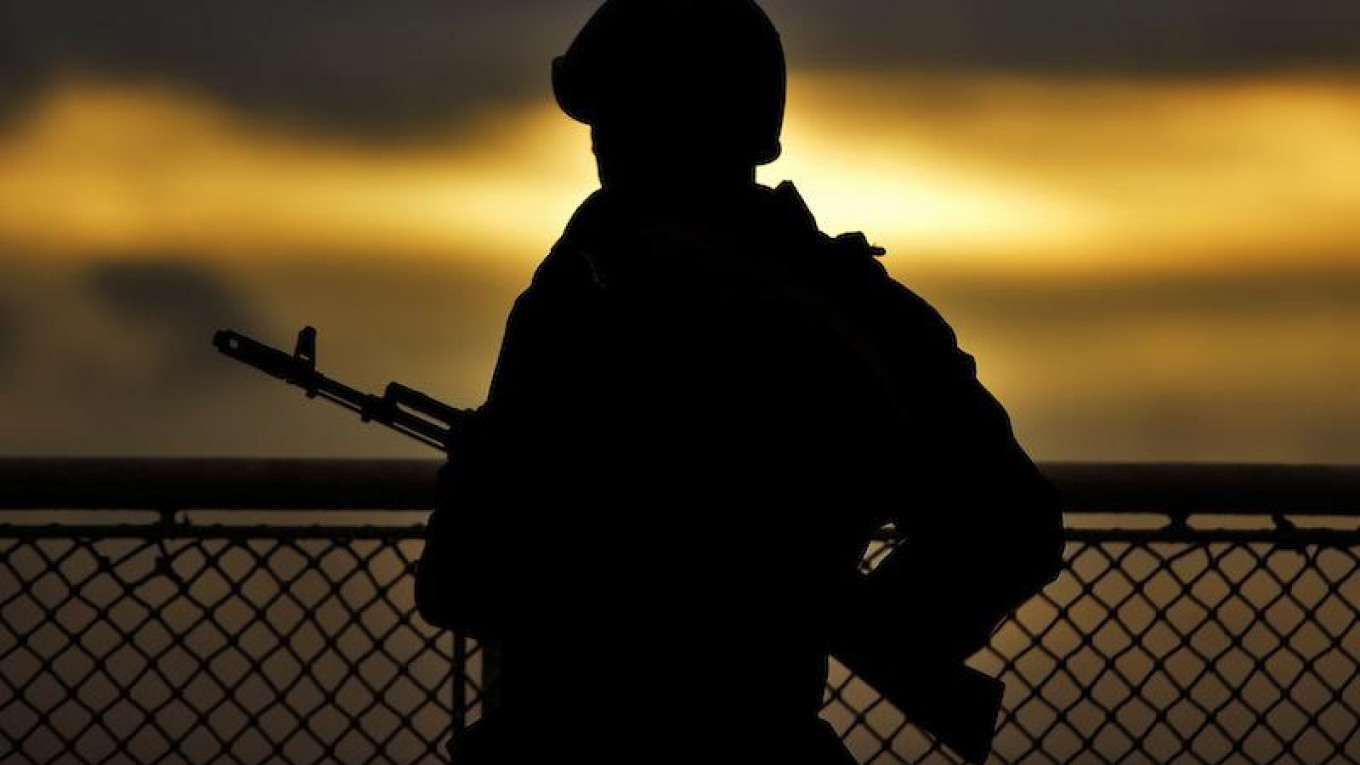Just days after the Russian government's authorization of an indefinite combat mission in Syria, the State Duma is considering another military maneuver: changing the law on military service to offer short-term contracts to Russians eager to fight in specific wars. It is a move that experts say is aimed at formalizing the status of unrecognized Russian mercenary forces fighting abroad.
As things currently stand, Russia's military service laws set a mandatory minimum of six-to-twelve months on short-term military contracts – which can only be offered in emergency situations, such as natural disasters, restoring constitutional order, or peacekeeping missions. The amendment, if adopted, would allow for contracts of any length below six months to be offered.
Citing a “changing military-political situation,” the legislation also proposes expanding the definition of emergency situations in which the short-term contracts can be offered. These may now include “the suppression of international terrorist activities beyond the territory of Russia,” or for duty aboard Russian naval vessels dispatched on unforeseen detours.
The proposal has stoked mounting speculation that the Russian government is moving either to legalize private military companies – mercenary outfits like the notorious American Blackwater group – or to give Russian mercenaries already fighting abroad the chance to formalize their relationship with the state and receive compensation for their families if they die in combat.
“I think this is about turning private contractors into active duty soldiers,” says Russian foreign affairs expert Vladimir Frolov. “This allows those killed or wounded in action to get the benefits they were promised. It also gives the Defense Ministry more flexibility in hiring people for short-term deployments overseas.”
But according to Vadim Kozyulin, a military expert at the Moscow-based PIR Center, this isn't so much about mercenaries – who are still taboo in Russian society, despite increasing lobbying efforts to legalize their activities – but former soldiers who have already received training, but unwilling to commit to the standard three-to-five year volunteer contract.
“I think many retired Russian military personnel are not willing to re-join the army, but would be ready to have a brief and well-paid vacation abroad,” Kozyulin says. “They don't want routine service at a remote base somewhere, but would be happy to join a real a thrilling mission that could bolster the family finances.”
Indeed, it would make little sense for the Russian government to have anyone other than former soldiers and mercenaries in mind when drawing up short-term contracts. The main reason three-year volunteer service was implemented was to address the fact that most Russian soldiers are conscripts on year-long stints in the military – by the time they are trained to do anything useful, they are eying the door.
Even Russian servicemen can find use for the change in legal procedure. In a recent interview with journalist Sergey Parkhomenko on the Ekho Moskvy radio station, a contract soldier expressed frustration with the nature of contracts to perform short work in Syria - they are completely illegal, he said. As for fighting in Ukraine, there are no documents, only verbal agreements.
Russian private military outfits, such as the infamous Wagner mercenary unit, have been reported by a variety of Russian and international media outlets as doing the majority of on-the-ground fighting for the Russian military in Syria. However, these groups are supposedly banned by Russian law, and therefore present a problem for the Russian government.
Perhaps more important: the government's official line is that Russian military forces are only engaged in aerial operations against terrorists in the shattered Arab republic. No Russians of any stripe are supposed to be fighting there. In March, when the Islamic State* claimed to kill five Russians in the battle for Palmyra, the Defense Ministry claimed that they weren’t theirs.
According to an investigation by Fontanka.ru, a St. Petersburg news outlet, the soldiers were indeed contracted not with the Defense Ministry, but with Wagner. The group and its predecessor, the Slavonic Corps, have been reportedly involved in Syria since 2013.
Because they activities are not formally sanctioned, Russian mercenary fighters exist in a grey zone – one in which they fight for the Kremlin's objectives, and receive none of the benefits or glory reserved for soldiers in formal service to the state. Sky News in August reported that Wagner has lost somewhere around 500 to 600 men fighting in Syria.
“No one will ever find out about them,” a Wagner soldier, introduced by Dmitry (not his real name) told Sky, “that is the scariest thing. No one will ever know.”
*The Islamic State is a terrorist organization banned in Russia.
A Message from The Moscow Times:
Dear readers,
We are facing unprecedented challenges. Russia's Prosecutor General's Office has designated The Moscow Times as an "undesirable" organization, criminalizing our work and putting our staff at risk of prosecution. This follows our earlier unjust labeling as a "foreign agent."
These actions are direct attempts to silence independent journalism in Russia. The authorities claim our work "discredits the decisions of the Russian leadership." We see things differently: we strive to provide accurate, unbiased reporting on Russia.
We, the journalists of The Moscow Times, refuse to be silenced. But to continue our work, we need your help.
Your support, no matter how small, makes a world of difference. If you can, please support us monthly starting from just $2. It's quick to set up, and every contribution makes a significant impact.
By supporting The Moscow Times, you're defending open, independent journalism in the face of repression. Thank you for standing with us.
Remind me later.






